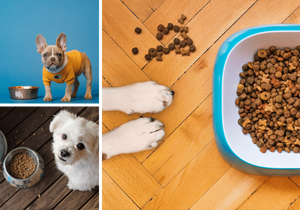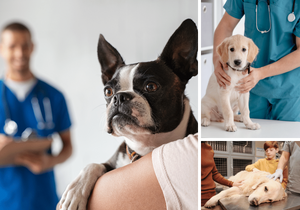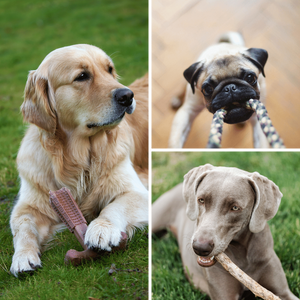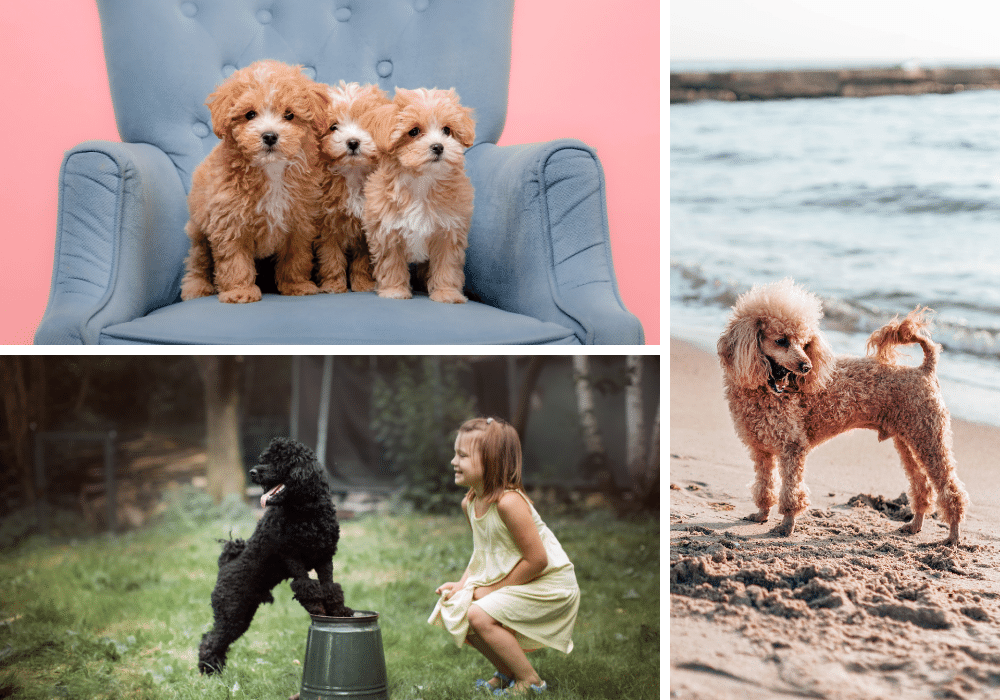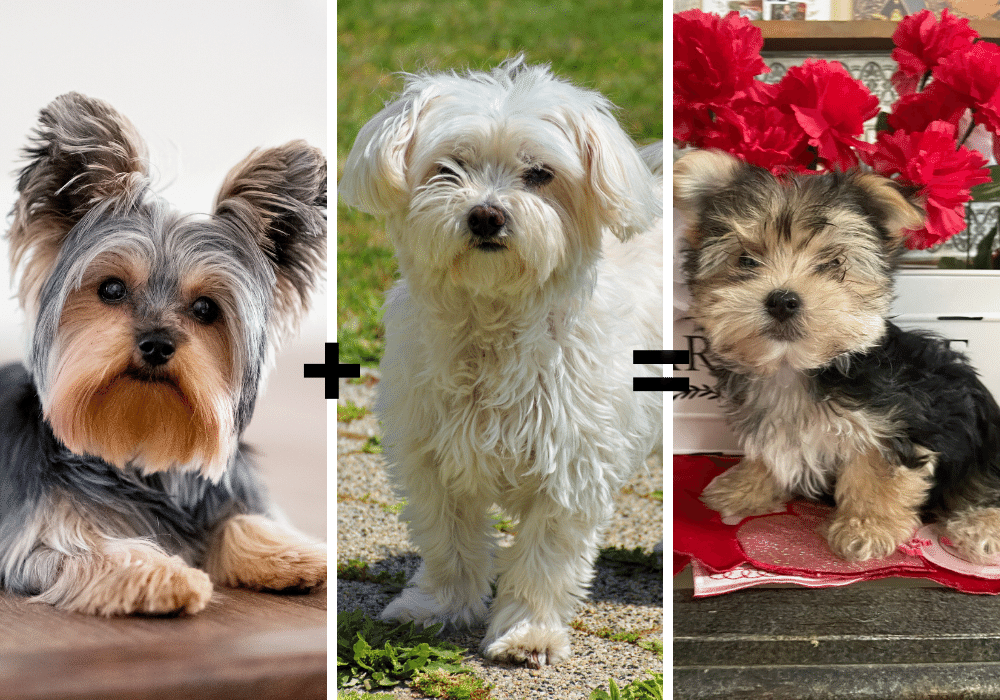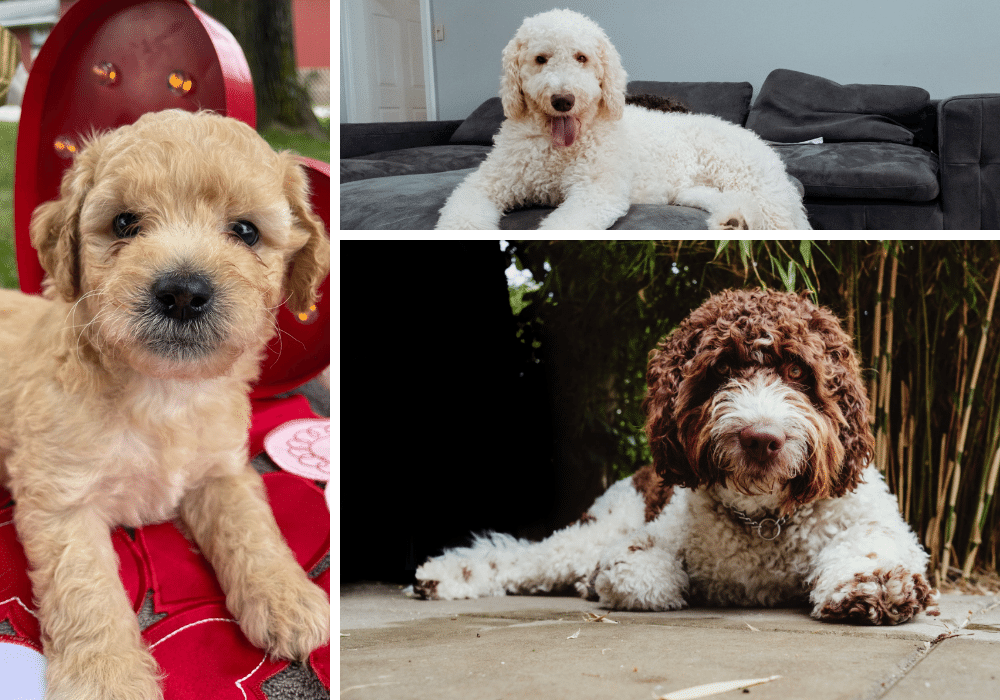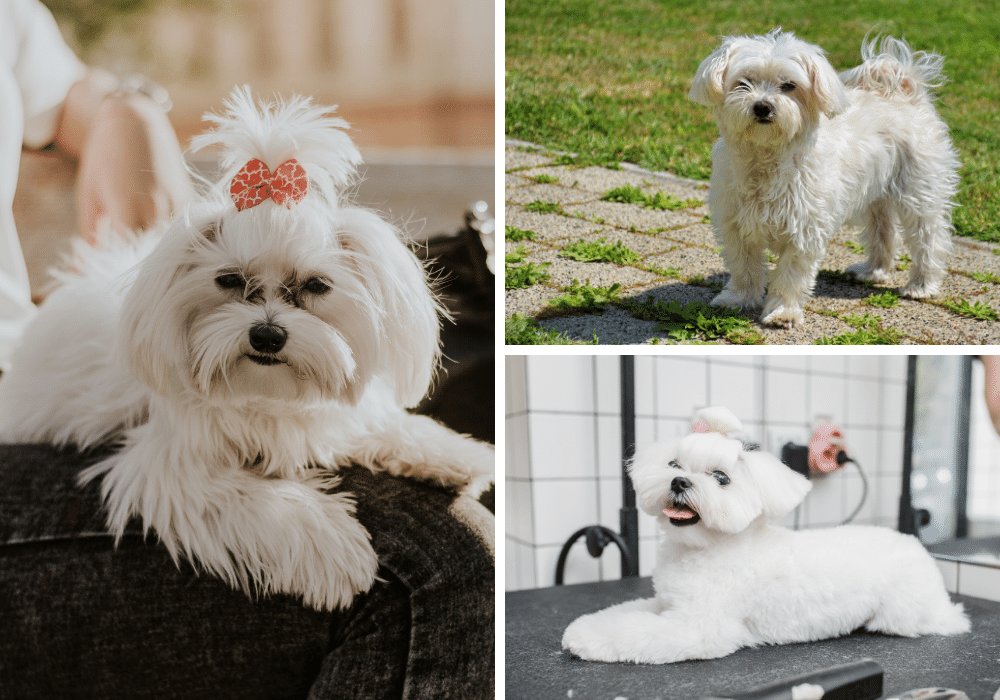King Charles Cavalier spaniels are adorable, fun-loving small dogs that will win your heart! They love their humans, have a beautiful face with big eyes that will have you melting as soon as you see them! They make amazing family dogs, will be a lap dog or an athlete! Let's learn more about the Cavalier King Charles to see if they just might need to be your next best friend!
We have owned two King Charles Cavaliers - one male (Rory) and one female (Karen). They are sweet dogs and fit the stereotype of cavaliers to a T! They are adorable pups that love your attention. We have given Karen to a friend of ours, and she is so spoiled! She loves to be dressed up and go out and about in style! Their apartment complex (yes, they are great apartment dogs!) had a contest this past Christmas for the cutest dog - and guess who won! Karen!
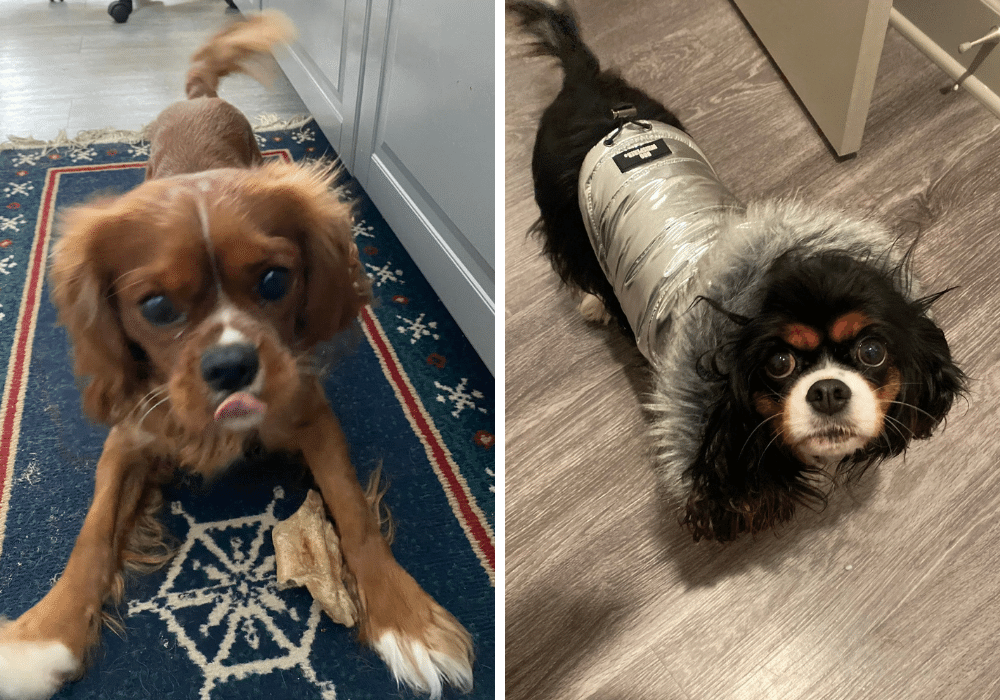
So the story behind how Karen got her name is another great story. When we got her, and we hadn't named her yet - our neighbors had a little girl who was 3 or 4 years old. When she asked what her name was, and we hadn't named her yet - she asked if we could name her Karen - because that was her grandma's name. To me, that was so funny that I said, "Of course we can name her Karen!" Even funnier - several years later she asked me if I knew her grandma's name was Karen. She didn't even remember asking me to name our Karen after her grandma! Kids are so funny!
History
The King Charles Cavalier is a direct descendant of the toy spaniels that were popular during the reign of King Charles II in England during the 17th century. They were bred to sit on laps and accompany their owners on walks through the countryside. Today, they are as popular as ever and are known for their endearing personalities and charming looks. They are also know by the name Cavalier King Charles Spaniel, and their owners might lovingly call them Cavvies.
Personality Traits
King Charles Cavaliers have sweet, friendly dispositions that make them ideal family pets. They love people—especially children—and enjoy being around them, even if it means playing rough sometimes! They are known as lap dogs that also make great therapy dogs!
They also get along well with other animals, including cats, so they make great companions for other pets too. Additionally, these pups are very intelligent and easy to train, making them obedient companions who can learn tricks quickly.
Cavalier King Charles Spaniels can be happy little athletes participating in various canine sports, or a couch potato! They will adapt to whatever their owner prefers. But, it is important to note that they should never be allowed outside off leash without a fenced yard! They do descend from a hunting dogs, and their noses will take them from one smell to the next - and before you know it - your toy spaniel is gone! Their scenting and hunting instincts will take them away from your yard and finding them will be tricky!
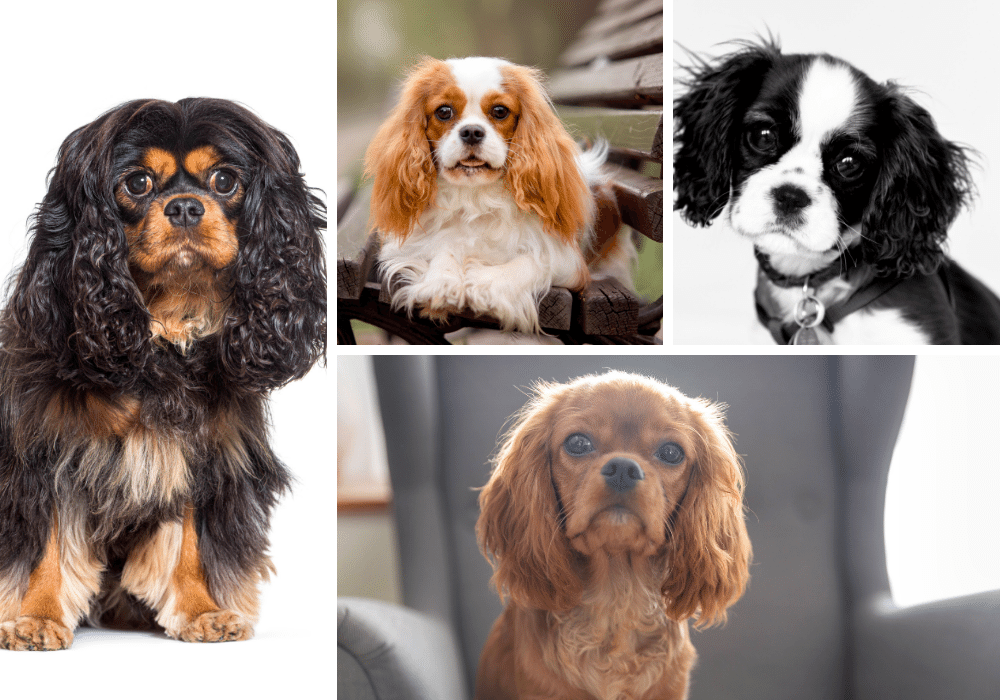
Basic Body Traits
Cavalier King Charles Spaniels are considered a toy spaniel or a small dog standing approximately 12 -14 inches at the shoulder. A healthy weight is usually around 13 to 18 pounds. Their life expectancy is between 10 to 14 years of age.
The AKC (American Kennel Club) recognizes 4 different color patterns as breed standards: black and tan, black and white, red and white (known as blenheim) and ruby (solid red). They also recognize tan markings added to the previous patterns so you will also see a tri-colored Cavalier King Charles spaniel. Some other kennel club organizations also recognize a chocolate and tan pattern (dark brown with light brown highlights).
Care Requirements
Cavalier King Charles spaniel dogs don't need much exercise, but they do need daily walks or playtime. A good brushing every day is important too, because their long coats can be prone to tangles and mats if not taken care of properly. They should also be groomed regularly to keep their coats looking its best and help prevent skin issues from arising due to poor coat maintenance.
That doesn't mean that you must go to a groomer - but you would need to give your Cavvie a bath and a blow-drying, trim nails and clean ears regularly. They do not require hair cuts. You might need to trim the fur around their bottoms, the tips of their ears - and their cute little feet. Their hair on their feet continues to grow and is just adorable. I call it "grinchy" feet!
Health
King Charles Cavaliers do have a few health genetic health problems that you should be aware of and watch for if you are getting a new pup! First, they are prone to heart problems. They often are diagnosed with heart murmurs (mitral valve disease). Heart murmurs are "graded" by vets. Grade 1 is the least troublesome, and Grade 6 is pretty bad. If you new Cavvie is a puppy and it has a Grade 1 heart murmur, there is a good possibility that it's heart will continue to grow and heal itself. There is no guarantee that will happen - but I've seen it happen many times.
They are also prone to hip dysplasia, patella luxation, certain eye conditions (including retinal problems and cataracts) as well as a neurological issue called Syringomyelia.
If you are getting your new King Charles from a breeder, be sure that they have tested the parents for these conditions. Responsible breeders all test for these conditions! They do not want to have these problems in their puppies and will make sure their dogs are not passing these traits along!
If you are getting your new Cavvie from a rescue or a shelter, get your new best friend to the vet to be evaluated for these issues immediately so that you can be sure to act preventatively for these long term health issues.
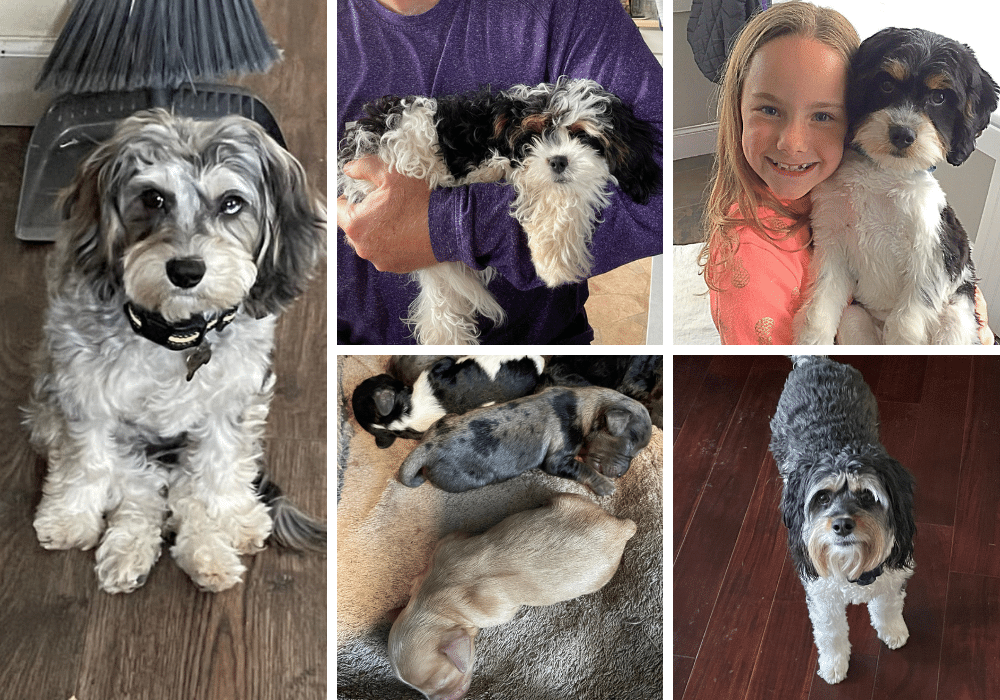
If you love the Cavalier King Charles Spaniel, but the health issues in the purebred dogs seem daunting - you might consider one of the popular mixed breeds that include cavapoos (Cavalier crossed with a poodle) or a beaglier (Cavalier crossed with a beagle). The nice thing about mixed breeds is that there are generally fewer health issues with them, and you still get many of the breed traits that you love!
As always - if you are getting a new King Charles Cavalier - be sure you get your new puppy fully vaccinated! If you are adopting an adult cavvie, ask for their vaccination record. If you cannot get a record, then assume they have not been vaccinated and get them to your vet to start that protocol! We talk about the importance of fully vaccinating your dog in this article.
Conclusion
King Charles Cavaliers may have been bred for royalty centuries ago, but today they're just like any other pup—they want cuddles and belly rubs (lots of them!) They make excellent family pets because they're smart and loving while being gentle enough to accommodate even small children or seniors. Plus they don't require too much exercise or grooming; just some daily love will keep 'em happy! So next time you're looking for a loyal companion that will give you endless amounts of affection—look no further than the King Charles Cavalier!
Breeders
Arctic Acres Cavaliers, Rochert, MN
Related Articles
- Dog Breeds
- 4 Vaccines Your Puppy Needs: A Must-Read Guide to Your Pup's Vaccination Schedule
- Put a Smile On Fido's Face: 11 Toys to Clean Teeth for a Winning Grin!

